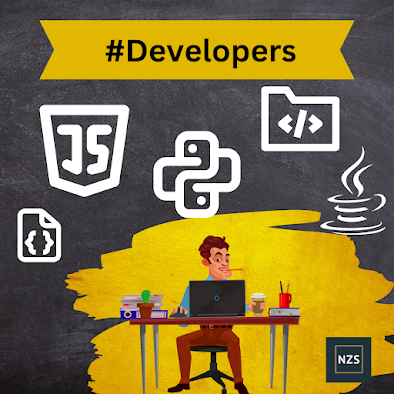Developers have constructed a metaphorical Tower of Programming Languages in the wide and dynamic realm of information technology (IT), employing several programming languages as their bricks-and-mortar. These languages give programmers the ability to speak with machines, allowing them to create the systems, software, and applications that drive the digital age. The variety of programming languages, like the real Tower of Babel, can occasionally appear daunting, but each one has certain advantages that make it a vital tool for various jobs.
In this blog, We'll go on an interesting exploration of some of the most well-liked and popular languages of programming used by developers in IT.

The "Swiss Army Knife of Programming," Python is a flexible and potent language praised for its clarity and readability. It is a multipurpose language used for a variety of tasks, including data analysis, machine learning, and web development. Python is a great option for both novices and specialists because of its clean syntax, which enables developers to produce simple code.
Most likely, if you've ever used a web application or visited a website, you've come across JavaScript. JavaScript, the web's native language, enables programmers to make dynamic, interactive websites. It plays a key role in front-end web development and collaborates with HTML and CSS to give users a rich online experience.
Many enterprise-level programs use Java, an object-oriented, high-performance language, as their foundation. Java code may be executed on any platform that supports the Java Virtual Machine (JVM), which is known for its "write once, run anywhere" (WORA) capabilities. This capability has elevated Java to the top of the list of programming languages used globally and made it the go-to option for complex applications.
Microsoft created C#, which is a powerful, contemporary programming language mostly used for building applications on the.NET framework. Java and C# are very similar, however, C# also has certain distinctive features like properties and delegates. It is widely utilized in the creation of Unity-powered games and Windows applications.
The foundational languages of system-level programming are C and C++. C is frequently used to create operating systems and embedded devices due to its effectiveness and low-level capabilities. A version of C called C++ is frequently used in game development and applications that require high performance. These languages offer unrivaled performance and hardware resource control, albeit requiring extra care with memory management.
Popular web frameworks like Ruby on Rails are built on the simplicity and productivity of the Ruby programming language. By emphasizing "convention over configuration," this language enables developers to accomplish more with less code. Ruby has a devoted following among web developers thanks to its environment that is centered on the community and its clear syntax.
Go, also known as Golang, is an open-source programming language developed by Google with concurrent development and scalability in mind. Go is a great choice for creating scalable online services and distributed systems due to its strong emphasis on straightforwardness, performance, and ease of use. Its capacity to effectively manage applications with significant traffic has helped it grow in prominence in recent years.
Built on the multiplicity of programming languages is a metaphor for the inventiveness and innovation of developers around the world. Each language provides advantages that are tailored to particular use cases and domains. The broad range of programming languages is influenced by factors including Python's adaptability, JavaScript's supremacy on the web, Java's enterprise-grade features, C#'s connection to Microsoft, C/C++'s command over system resources, Ruby's elegance in online development, and Go's prowess with concurrency. Developers may come across new languages or see the growth and collapse of old ones as technology continues to advance. Programming Languages will keep growing as long as the digital world is successful, but the core of programming languages resides in their capacity to span the gap between human ideas and machine execution.